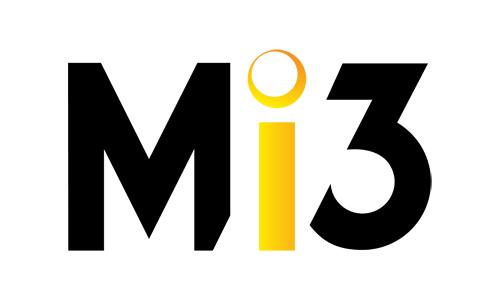Media agency holding company CEOs are openly acknowledging the importance of arbitrage-based principal trading to their business models – and it’s spreading rapidly out of digital display into TV, audio, digital out of home, connected TVs and beyond. Former UM Global Chief Media Officer Joshua Lowcock, who left the IPG-owned media agency network last year to head up media at US group Quad, is bleak on the distorting market effects of holding companies buying media for themselves and on-selling to advertiser clients with handsome mark-ups – often in ‘bundled’ products which blend a small quota of quality inventory with the tonnage more in low value, low quality ad placements. “Both agencies and clients have built themselves a prison that they can’t get out of,” says Lowcock.And agencies resisting principal models are increasingly disadvantaged – they risk being dragged into “financial engineering” too. Per Lowcock, “somewhere in the myriad of complexity of a holding company, I can tell you it’s occurring and a large armoured vehicle with boatloads of cash is pulling up somewhere and unloading it into a holding company … well, it’s probably more electronically transferred.”Should anyone care that agencies are finding ways to make money that procurement-driven clients are in effect incentivising by refusing to pay fees for service – especially if the media bought and on-sold arguably does the job?”It’s not doing the job because clients are not getting the media that they should be getting to drive the ultimate business performance,” Lowcock argues. “They’re getting the media that drives the agency’s bottom line,” per Lowcock. He describes it as a nutritionist advising a diet of “junk food”, with clients at risk of morbid obesity.Indy shop Media by Mother, headed by former GroupM exec Dave Gaines, says he doesn’t do principal media deals or arbitrage but “it’s surprisingly hard to get people to align on business success outcomes” versus the short-term allure of trading off not paying media agency fees for the hidden costs in mark-ups and tech and data fees typically wrapped into principal media agreements. Moreover, Gaines says retail media is making the situation worse with retailers becoming media owners and seeking their own preferential deals. While traditional media owners complain about principal media trading eating their margin and agency mark-ups making them appear expensive, Gaines says the truth is, “a lot of the big TV networks don’t like to have to deal directly with clients. They’re happy to offload a lot of this media inventory because then they haven’t got to worry about selling it”.Either way, few owners will complain publicly for fear of retribution, i.e. being cut out of group spend, per Nick Manning, non-executive chairman of Media Marketing Compliance and adviser to peak US advertiser body the ANA. Manning sees principal media’s rise leading holdcos to becoming just the same as the walled gardens whose business models they are trying to emulate.”They’re all building AI tools that will do creative production, media distribution and analytics together in one in one box. It will be a black box, and clients won’t be able to tell a lot about what’s going on in there, but it will be an arbitrage-led model.”Quad’s Lowcock says he’s happy to tell any finance, procurement, marketing, legal and internal auditing department “all the answers” as to what goes on and how to fix it – and does just that in this podcast.
Author: admin
Dan Ferguson ends 7-year tenure as Adore Beauty CMO
Adore Beauty CMO Dan Ferguson has parted ways with the business after seven years. His exit follows the opening of the once ecommerce-only beauty retailers first physical store in Southland, Victoria last month – the first of at least 25 retail locations the planned nationally as the brand looks to grow its active customers from 800,000 to 1.25 million.
Unilever leverages AI for faster, cheaper product imagery
Unilever is harnessing AI-driven technologies, including NVIDIA Omniverse, to reform its product imagery creation process. By utilising digital twins of its products, Unilever claims imagery production is reportedly two times faster and 50% cheaper, while maintaining 100% brand consistency.
ALDI Australia, Budgy Smuggler launch hot cross bun-themed Easter swimwear collection
ALDI Australia has gone hard on hot cross bun season this year with the addition of a Giant Hot Cross Bun to its Easter bakery range, alongside the launch of a hot cross bun-themed swimwear collection in collaboration with Budgy Smuggler Australia.
Maga and marketing science: Intrepid Travel’s Leigh Barnes navigates US market knocks on purpose and brand over performance but contrarian strategy drives $1bn growth plan
Cracking America is the mark of any great brand. Leigh Barnes, Americas President and Chief Customer Officer at global Australian travel firm Intrepid is relocating his family – literally today – to Seattle, home of grunge, and walking a tightrope as a DEI, purpose-driven B Corp business in the age of Maga corporate. He’s getting “slapped around the head” a little and is working through what adjustments he may need to make in a sensitive political environment. Still, Intrepid in the US is cutting a contrarian brand-powered swathe through the performance-driven marketing echelons and it’s working. Organic search is through the roof as a “cocktail” of traditional above-the-line brand advertising and PR storytelling rapidly moves the needle, though AI chatbots may have a hand. Direct business is working so well that Barnes must now build out US partnerships akin to its early ANZ work with Flight Centre or risk over-reliance on fickle online platform gatekeepers. But, to the chagrin of “Russian bot farms”. he’s confident Intrepid will soon be a billion dollar company.
Chief zombie killer and AI ad warning: Coke’s global boss fears world where bots remake ads infinitely until people buy, why he culled 200 brands – and marketing’s only safe bet
Brands will soon be confronted with a choice: Employ AI to make cheaper, more plentiful ad creative so you can keep chasing a prospect with iterative messaging until they finally click yes, or risk pissing off said consumer while doing it, says The Coca-Cola Company’s chairman and CEO, James Quincey. Speaking today at this year’s Adobe Summit, the beverage giant chief has no immediate plans to remove the real humans from its advertising, even after attaining cost and efficiency gains from its first generative AI-made holiday campaign at Christmas. But he admits the enticement of cheaper, faster, infinitely more personalised campaign creative at scale using AI is a lure most marketers are going to be hard pressed not to swallow – and that could prove seriously problematic. The last great hope? Live events.
Jetstar launches ‘Takeoff More’ campaign via Thinkerbell
Jetstar has launched a new brand campaign titled ‘Takeoff More’, developed in collaboration with the agency Thinkerbell. The campaign aims to highlight Jetstar’s low fares by comparing them to the cost of everyday items such as a pub meal, sneakers, or cotton sheets.
Leggo’s brings ‘Something Saucy’ to Melbourne Food and Wine Festival
Leggo’s is set to make its debut at the Melbourne Food and Wine Festival (MFWF) in 2025, with the Australian pasta sauce brand partnering with Super Norma, a pasta bar located in Carlton, for a one-day event titled ‘Something Saucy’.
The CDP hangover and the cure: How Australia’s post-pandemic customer data frenzy unfolded and where it goes next
Three years ago, Australia was on “a CDP bender”, with marketers wooed by the prospect of a single source of truth linking disparate customer data and the ability to slash customer acquisition costs, activate more smartly and efficiently, delivering personalisation at scale while insulating against a twin pincer of a looming cookie cull and major privacy tightening. In other words, “invest in a CDP and – boom – the money rains down”, per one market observer. Three years on, the landscape has changed, use case development has often stuttered – and a lot of contracts are up for renewal. Sitecore CEO Dave O’Flanagan, mParticle CEO Michael Katz, Forrester’s Joe Stanhope, Adobe’s Gabbi Stubbs, Salesforce’s Leandro Perez and others weigh in on where next, and how.
Val Morgan Cinema, Kantar research confirms cinema delivers incremental reach among youth audiences
Val Morgan Cinema has published published a new study examining the effectiveness of cinema in reaching high-value younger demographics, underscoring the role of the channel in the audiovisual mix, particularly its ability to enhance incremental reach and drive efficiency and impact per frequency










